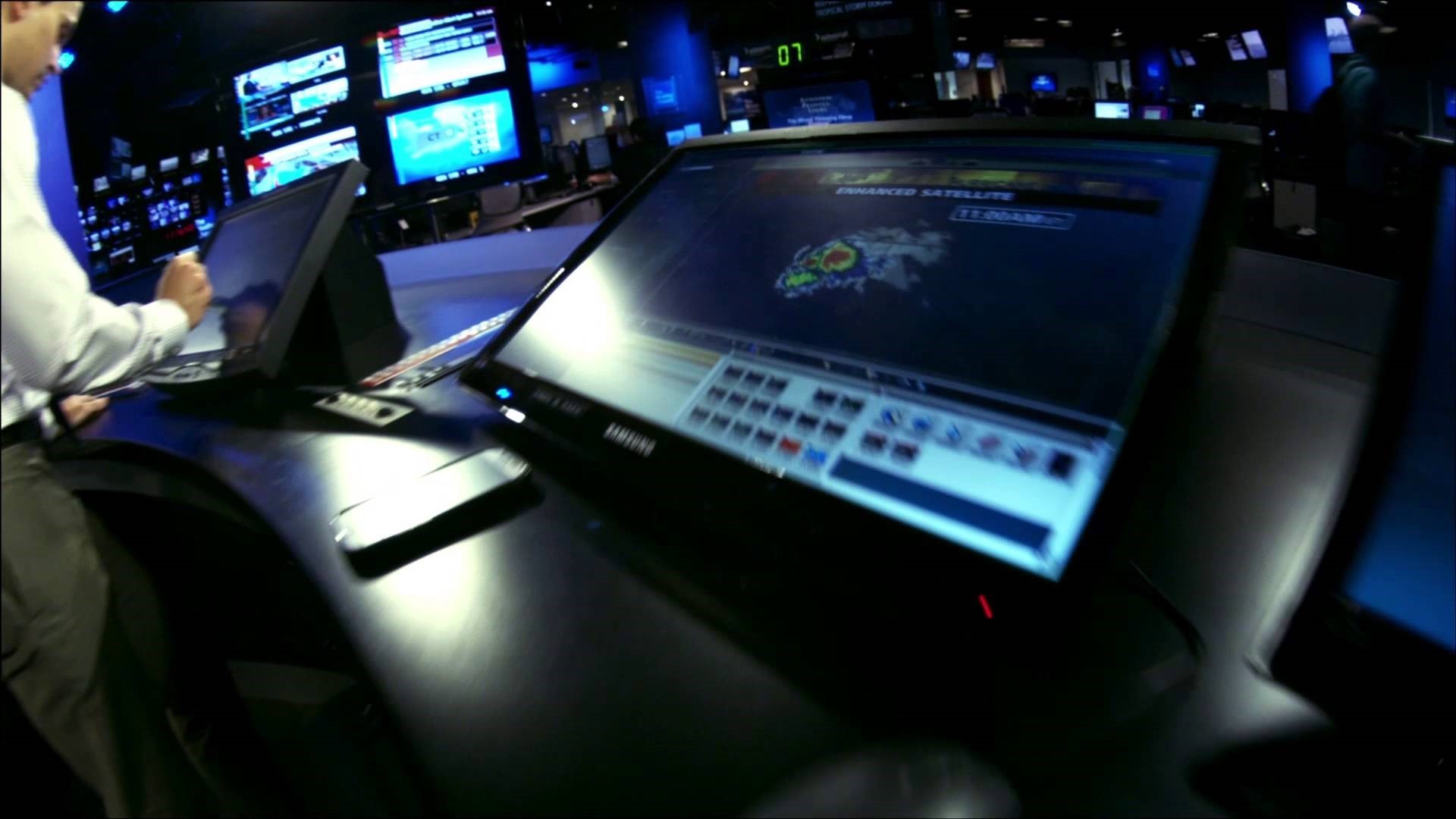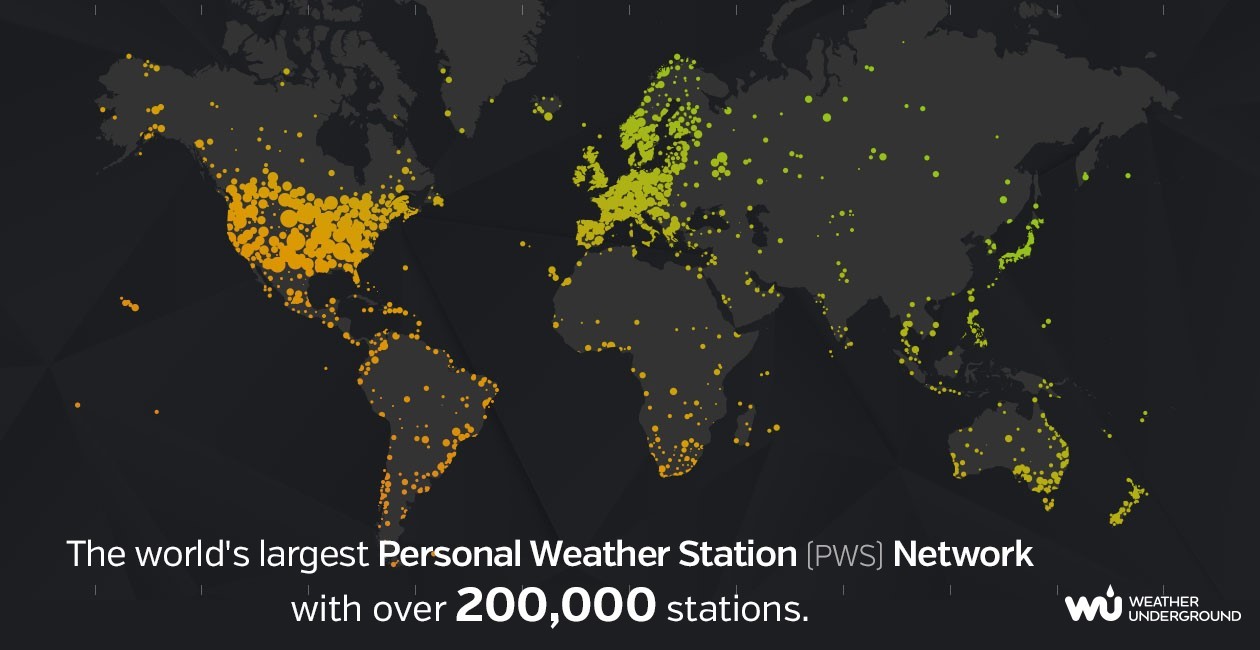IBM Watson got the job of a weather scientist

The IBM Watson cognitive system can work as a doctor , cook , information security specialist and scientist . Now Watson has also become a synoptic. More precisely, earlier the system was already able to make predictions, but now, if I may say so, Watson has gone on increasing.
Our company has entered into a cooperation agreement with Weather Underground, which makes its own weather forecasts based on data from 200,000 weather stations. These stations are distributed throughout the world, including Asia, South America, and Africa. Now these data are planned to be analyzed using IBM Watson in order to make even more accurate predictions.
When IBM acquired The Weather Company / WU (this happened in October last year), it immediately announced its intention to integrate all 200,000 weather stations received with The Weather on the Internet of Things. This meant that data from station sensors would be immediately analyzed. And the goal of the project is not the weather forecast on TV. The main task is to help the business.
')
In the USA alone, the losses of various companies due to adverse weather conditions amount to $ 500 billion annually. But you can not lose money if you know where and how the weather will change. And the best option is a long-term forecast. Airlines, insurance companies, farms - they all lose a lot of money because of the vicissitudes of the weather. But if you know where to wait for trouble, you can avoid problems and large losses.
“All of The Weather Company’s data can be obtained through the API,” says John Cohn, one of the project participants. Access to the API is at Watson. This cognitive system analyzes all data from weather stations, makes a forecast and provides information to partners.

The first project was called EZ Buddy, it is implemented in Kenya. EZ Buddy provides data on the dynamics of local weather conditions to owners of local agricultural land. Farmers, aware of changes in the weather, understand what needs to be done in one way or another, and act accordingly. By sending an SMS to a specific phone number, any of the farmers in the region may ask: "When do I need to water my field?" Or "When will the rain fall and will my fresh water supply be replenished?"
The system responds to questions in a reply message. Now farmers in Kenya are actively using this opportunity, and not only to know when to water the field. They consult IBMWatson about fertilization time, planting season, optimal pesticide use time.
Airlines also cooperate with TheWeatherCompany (recall, this is now a division of IBM). Dispatchers and pilots need to be aware of turbulence zones in order to plan the best route, which not only does not endanger the life and health of passengers, but also saves fuel. Every year, airlines lose about $ 5 million per year due to the need to repair aircraft that fall into the zone with adverse weather conditions.
Even more, about $ 35 million, goes to the treatment of pilots and compensation to passengers injured during flights. Now our company collects data on turbulence zones and provides them to airlines. Pilots can bypass the danger zones, and airline computer systems change the time of arrival and departure of the flight accordingly.
Insurance companies, receiving information from IBM, will be able to warn their customers about the approach of a hurricane or flood. People in this case will try to do everything so that their property has suffered minimal damage. The benefits are evident both for companies and for customers. Energy companies after weather disasters usually lose millions of dollars - because the power system is damaged, and the average amount of repairing only one damage is about $ 500,000.

The given examples concern not only airlines, farmers, insurers. All of this applies to other representatives of a number of business sectors, as well as to government agencies that are responsible for the state of various infrastructures of human settlements. IBM Watson, using data from weather stations, can give a detailed weather forecast for about two weeks in advance. And this is a very accurate prediction.
Even 50 years ago, the weather forecast was more like a fortune telling. Now the weather forecast is the result of the most complicated analysis of huge data arrays. And the accuracy of such a forecast is in most cases very high.
Source: https://habr.com/ru/post/309666/
All Articles